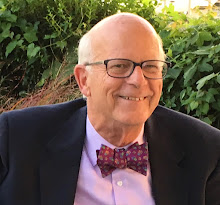About five years ago a bishop in northern Nigeria realized that in his diocese many Fulani tribesmen lived. They wandered in after the rains, settled their families, and then moved on to other pastures with their cattle. This bishop, the Rt. Rev. William Diya, knew that the Anglican Church of Nigeria was doing nothing in the way of outreach and church planting among them.
Bishop Diya went to the Primate, the Most Rev. Peter Akinola, with this report and the request that the Nigerian Anglican Church do something. The Primate made some inquiries about the Fulani and proposed a radical and pioneering response - the assignment of a bishop to the nomads of Nigeria, wherever they may be. A year or two later Stephen Mutum was consecrated as this bishop.
Three dioceses at least are doing church planting among the Fulani - Bp. Diya's, Bp. Mutum's, and Bp. Tula of Bauchi Diocese.
Our group met with all of these, except Bp. Mutum who was not in the area, and learned about their work. The more we learned from them and the more we saw of the work, the better our conversations became among ourselves about our connections.
The best model I saw in the Bible was the relation Paul had with his friends in the Philippian church. In his introduction he laid out the top of his 100 options. He said he prayed for them, prayed with joy, kept them in his heart, sent Timothy so he could keep up with them, and wanted them to know about his own situation.
That was the least and the first that we should be doing with these leaders of the Fulani work. We have their names, we have seen their churches, have met their leaders, know the needs, heard some stories, went to their worship centers, noted the strategies for exansion. We will keep up with them all; we will pray for them; we will tell their stories to others; we (some, at least) will go back to stay in touch; and we will support the efforts in ways that they are unable to.
And for sure we will forever find ourselves lifted to a higher level of being bold and eager for the Lord's work to be done through us where we are, as they are there.
Subscribe to:
Post Comments (Atom)

No comments:
Post a Comment